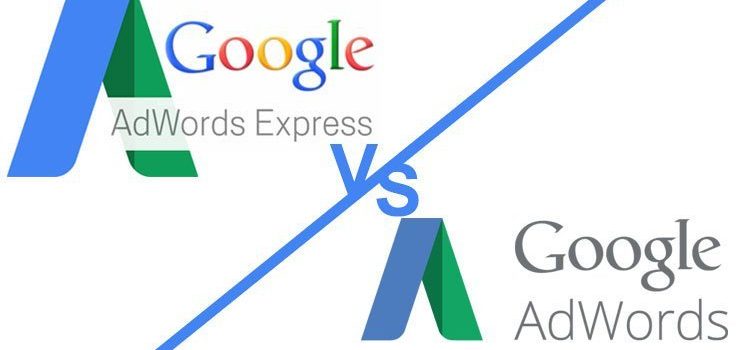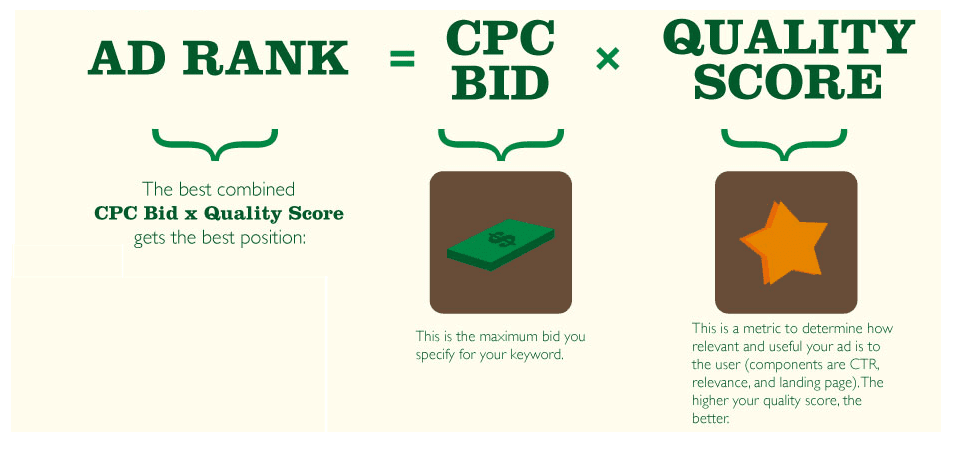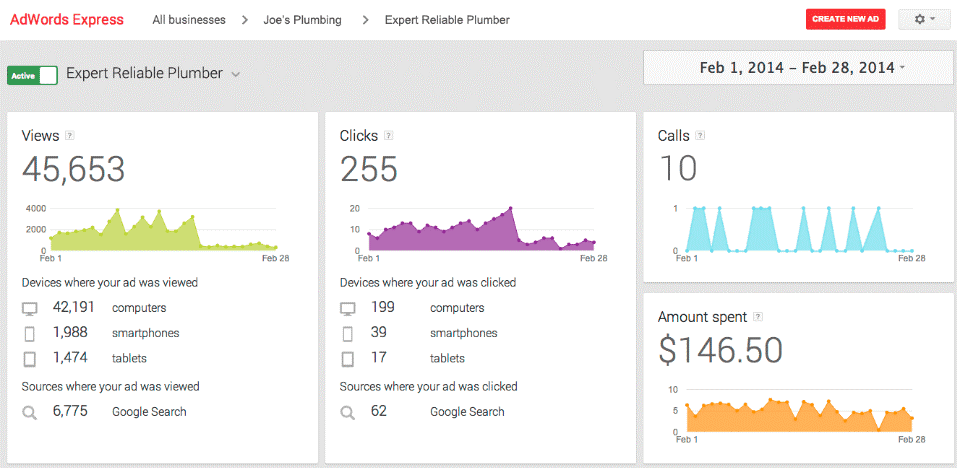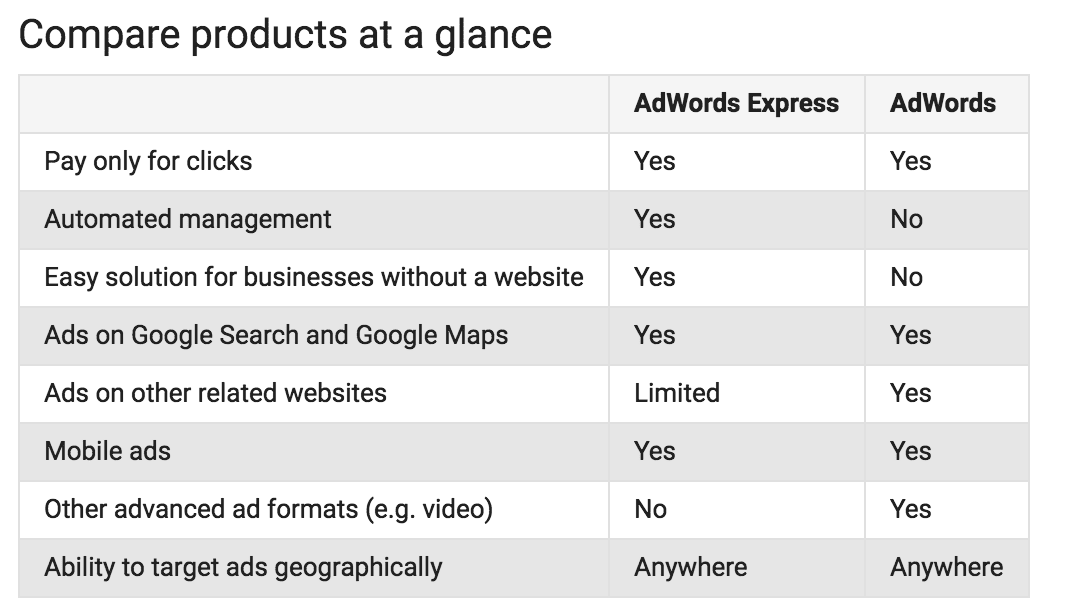AdWords Vs. AdWords Express: Which is Right for Your Business?

A brief overview of Google’s PPC Choices
As far as online Ads campaign go, Google’s PPC (Pay-Per-Click) is by far the leader of them all. This, however, isn’t to belittle other great Ads targeting PPC sites which are — by the way — as relevant and quite popular as Google Ads, this includes services such as Bing Ads & Yahoo Ads.
Chances are, you’re already familiar with Google PCC marketing if you’re a digital marketer or at least an owner of a business with an online presence. However, if you are curious to learn more, or you already know that you want to use PPC to market your business, but undecided whether to use AdWord or AdWords Express, you’ve come to the right place!
PPC (pay-per-click) is a form of digital marketing in which advertisers pay a certain amount of money each time any of their ads are being clicked. PPC; also called CPC (Cost per Click) has two advantages over waiting for the traffic to come to you organically. Basically, PPC is just a way of buying visits to your site, rather than attempting to earn those visits naturally. PPC advertising is the easiest way to push traffic to any website.
If you’re a business owner that’s interested in advertising on Google, you might be considering AdWords or AdWords Express. So what’s the difference between the two?
Google Adwords Vs. Adwords Express
Google Ads can be a great way to drive traffic to your website. They display next to search results related to keywords that you set up ahead of time. Essentially Google ads is an ad program that’s solely based on auction system — an auction system that rewards businesses who have high-quality ad campaigns with lower costs and better ad placement. Before we dive into the comparison between the two Google Ads programs, it’s vital that you know how each of them works individually.
How AdWords Works
One of the most popular myths when it comes to Google AdWords is that whoever has the biggest money to spend gets the best result. While having a large budget isn’t bad, Google AdWords provides an equal playing ground for all users more than many new advertisers realize.
Google Adwords functions the same way as an auction. As succinctly explained by Wordstream, once your Quality Score and AdRank have been calculated, Google uses this data to determine how much you’ll pay each time someone clicks on one of your ads. The formula looks like this:

Once a user enters a search query on Google, the ad auction begins immediately; this is what tells Google whether the query contains specific keywords advertisers are currently bidding on. The purpose of the auction is simply used by Google to determine the Ad Rank — that is, the particular position where each ad will be placed on the Google search result page. The Ad Rank formula is calculated by making use of two main factors – maximum bid and Quality Score:

Depending on your industry, keywords price ranges from $1 per click to $60 or even more per click.
The benefits of Google AdWords include
- You only get to pay when someone clicks your ads
- You have the liberty to pick your own keywords and set prices.
- Ability to reach customers in any geolocation
- You can place your ads by using different ad formats and detailed reporting
How AdWords Express Works
Adwords Express is the ‘fire-brigade’ approach of Adwords; in the sense that it’s more express and simplified platform where you can quickly run Google Ads with ease. Adwords is more complicated when compared to AdWords Express; especially for those who are not very familiar with PPC campaign. For someone who hasn’t spent a great deal of time to master AdWords, it is simply overwhelming to use. AdWords Express reduces the complexity, making it more inviting for less-experienced people to run a basic ad campaign on Google.

Beyond being very simple and easy to use, Google AdWords Express is meant for businesses to take advantage of sales. This means you have to be a local business with a brick-and-mortar shop or at least you have an online store you want to advertise on Express.
With AdWords Express, you can get started in just 15 minutes and have live ads up and running. Using Express, you can showcase ads for your business on the search network, mobile device targeting, Google Maps, and even Google website partners.
Benefits of AdWords Express include:
- You only get to pay when someone clicks on your ads
- It doesn’t require too much maintenance and other ads management
- Advertise on Google and Google maps
- Reach customers in any geographic location you choose
Difference between Adwords and Adwords Express
Express is a more simplified platform on Google for marketing your business through pay-per-click (PPC). AdWords proper is a very complex advertisement platform with highly robust functionality. To enable you to discover which one is right for your business, we put up a summary of the differences between the two ads program.

Google recommends that users shouldn’t use both at the same time — because of its capability of ruining your ads campaigns and making the clash against one another. The best way to determine the best choice to go with depends on your available time and resources, as well as the extent to which you want control over your online ads.
Still confused?
While it’s more alluring to many small business owners to choose Google AdWords Express over Google AdWords because of its simplicity, you might need to reconsider how this will affect your online marketing campaign, because, with Express, your ability to control the keywords to bid on will be taken away from you. More so, the cost factor and the conversion rate may not be favorable when compared to what you stand to get from AdWords. The control and customization from AdWords provide you with an opportunity to have an effective campaign.
How can Webterior Designs help?
Whether you prefer to use Google AdWords or Google AdWords Express, Our dedicated team of Internet marketers will be more than happy to help you start creating campaigns and generating revenue with PPC. Feel free to contact us to get started today!

